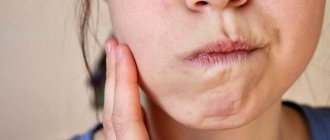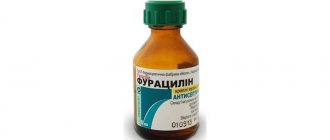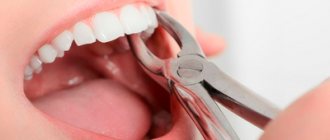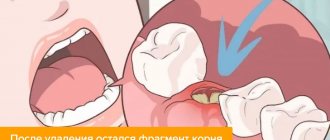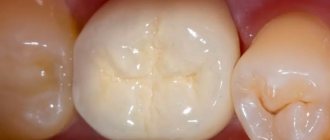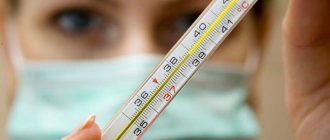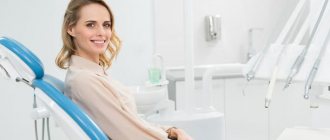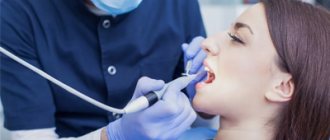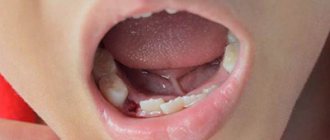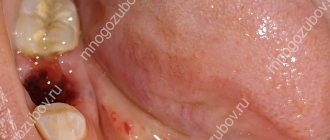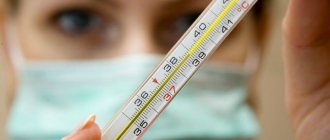After tooth extraction, especially if the procedure was complex, there is inflammation, swelling, suppuration in the mouth, you want to speed up the healing process of the wound and avoid complications from the appearance of pathogenic bacteria in it. To achieve this, surgeons often recommend mouth rinsing after surgery. But this does not always happen - sometimes the doctor will advise you not to do this.
Why is that? What is the correct way – when and with what to rinse your mouth after tooth extraction, and whether to rinse? We're talking to the doctors at the Family Smile dental clinic.
How gums heal after tooth extraction
It is worth knowing the specifics of the process in order to understand what is considered normal and what is not, and whether it is worth contacting the dentist again.
The average tissue recovery time is 10-15 days. During this period, the pain goes away, and new mucous gum tissue appears in place of the hole.
It all happens like this:
In the first two to three hours after the manipulation, the gums may bleed, and a thrombus will form in the socket - a blood clot that closes the wound from the penetration of bacteria. You shouldn’t injure him or try to spit him out.
Up to three days after the operation, the blood clot gradually thickens, decreases, and connective tissue begins to form inside the wound.
Three to seven days after the operation, the clot becomes lighter, and the hole is covered with young connective tissue. Pain and swelling go away.
After one to two weeks, bone tissue begins to form under the gum, in place of the extracted tooth.
After a couple of weeks, superficial healing is complete.
The timing may vary depending on the specific case and the patient’s health condition.
Do not ignore:
swelling, pain, bloody or other discharge from the socket that does not go away for more than 4 days.A “dry” socket is a deep cavity in the gum without a blood clot, but with a yellowish-gray, greenish, white coating and the smell of rotting.
Difficulty opening the mouth, clicking, pain in the temporomandibular joint that appeared after removal and did not go away within 2-3 days.
Numbness in parts of the gums and cheeks that did not go away after the anesthesia ended.
Runny nose, nasal congestion, and fever that appeared after removal.
In these cases, be sure to consult your doctor again.
Medicines from the pharmacy
It is better to use antibacterial and antimicrobial agents that do not contain alcohol. This way, you will protect the delicate tissue of the damaged gum from unnecessary burns.
- Miramistin.
It has the power to destroy bacteria, viruses, and fungi. You need to use a solution with a concentration of one hundredth of a percent. It is practically harmless. Suitable for babies and pregnant women. Use both as a solution and as a spray. Apply 3 times a day for a week.
- Chlorhexidine is
active against bacteria and some types of viruses. A solution with a concentration of no more than 0.05% is used. Miramistin is an order of magnitude cheaper. Maintains effect for up to 4 hours.
- Hydrogen peroxide
is a classic option. ITS three percent solution is a powerful antiseptic. However, use it yourself with caution. Contact with the wound produces foam, which can damage the blood clot. The liquid itself can cause irritation of the mucous membrane.
- Furacilin solution.
Used for purulent inflammation of the wound. In pharmacies it is available in liquid form and in tablets, from which you need to make a solution yourself. Crush 10 yellow tablets and dissolve in a liter of water. Rinsing is not recommended; it is better to use baths.
You can use decoctions
from chamomile
,
calendula, oak bark, sage, St. John's wort and eucalyptus.
On the effectiveness of anti-inflammatory herbs
in
In this case, you need to consult a dentist.
If the wound after tooth extraction is large and there is a risk of damaging the blood clot, it is better to prefer baths to rinses.
Take a sip of the solution into your mouth, maintain the liquid in the wound area and spit it out.
Attention! Do not use potassium permanganate. Reasonable people abandoned it long ago - it burns mucous tissue.
How to rinse your mouth after surgery
Ready-made pharmacy antiseptics and solutions made independently at home are applicable. Let's consider how to rinse your mouth after gum surgery or tooth extraction.
Your doctor may recommend not rinsing the wound on the day of surgery. Every other day, you can make oral baths with decoctions of chamomile, sage, or solutions of furatsilin, 0.05% chlorhexidine.
There are quite a few such drugs, and your doctor will give specific recommendations on what to rinse your mouth after gum or tooth removal. The choice of a suitable drug depends on the condition of the hole, the complexity of removal, the age of the patient, whether he has allergies or sensitivity to some components of the products.
Carefully! It is not recommended to use ethyl alcohol, hydrogen peroxide solution, brilliant green or iodine for rinsing. They can cause pain, burn the mucous membrane and lead to the detachment of a fresh clot.
Why you need to rinse the wound
Open wound after tooth extraction
This is a tasty morsel for the proliferation of pathogenic bacteria.
There are a lot of them in the mouth, as they accumulate near stuck pieces of food and plaque. If the gums are not protected, bacteria can provoke an inflammatory process
, suppuration and swelling of the soft tissues in the wound area, and cause pain. It is better not to disturb the wound for a day after the operation, so that a blood clot can form and the bleeding stops. Then you need to start rinsing to protect the postoperative site from bacteria and speed up wound healing. Let's figure out what to rinse with.
How to rinse your mouth after tooth extraction
The main rule is not to rinse your mouth too vigorously. Immediately after tooth extraction, you should do oral baths rather than vigorous rinsing. Rinsing vigorously may cause the fresh clot to fall out of the socket. Bleeding will occur and healing will be delayed.
How to rinse your mouth with Chlorhexidine after tooth extraction? Let's use the example of this popular tool. First, rinse the mouth with warm boiled water to remove any remaining food. Then we put 15-20 ml of the drug into the mouth and hold it for 15-30 seconds. On the second or third day after removal, gentle rinsing movements are allowed. Spit and repeat 2-3 more times. The number of rinses during the day is 3-6.
How much to rinse your mouth after tooth extraction depends on how the healing is progressing. You can stop rinsing when young gum tissue has formed at the site of the hole.
Should I rinse my mouth after tooth extraction: in what cases is this advisable?
If there is a high risk of infection of the wound surface or an inflammatory process already exists, gentle rinsing is considered appropriate. The doctor will definitely recommend doing antiseptic baths in the following situations:
- The tooth extraction was carried out against the background of already developing inflammation (pain, swelling, and edema were present before the operation). In this case, antibiotic treatment may be additionally prescribed for up to a week;
- If the gums were opened to release the pus (flux) that had accumulated in it. In this case, the doctor must wash the wound with an antiseptic solution in the clinic. At home you should do soda-salt and chlorhexidine baths;
- If there are foci of infection in the oral cavity: inflamed gums, untreated caries, decayed teeth, dental plaque. The advisability of antiseptic baths in such cases is explained by the reduced risk of infection of the wound surface of the hole.
It should be noted that even in the situations listed, we are not talking about rinsing, but about baths. In other words, the liquid should be taken into the mouth, held there for a while and carefully spat out. You should not overuse the procedure - it is best to take baths after meals and no more than five to six times a day.
How to eat after tooth extraction
There is an opinion that it is better to fast for the first day after surgery and drink through a straw so that liquid does not get into the wound.
In fact, everything is not so: You can already eat 2-3 hours after the manipulation - the body needs strength to recover. For several days, you should include slightly warm, soft foods in your diet and avoid hard, spicy, too cold or hot foods. Optimal choice: puree soups, milk porridge, stew.
You can drink immediately after removing the cotton swab from your mouth. Contrary to popular recommendations, you should not drink through a straw - when you retract your cheeks, a vacuum effect is created, which can tear the clot from the wound.
The dentist will talk about the main points in oral care after surgery and answer questions after the procedure. Follow the recommendations so that you don’t encounter complications and healing goes quickly!
How to rinse your mouth after tooth extraction
It would seem that if there is a tooth, there are problems; if there is no tooth, there are no problems. However, after tooth extraction
The problems may just begin in the surgery room.
After all, as a consequence of the operation, a wound remains, which can heal calmly, or it can hurt, ooze blood, become inflamed and even fester. How to behave correctly to avoid problems? The wound needs to be rinsed with special products
and
medicinal baths
. However, hygiene procedures must be performed correctly. If the dentist did not tell you about it in detail, we will tell you.
Proper mouth rinse after tooth extraction
The most important thing: in the first hours after tooth extraction, do not rinse your mouth under any circumstances! Reason: During intensive rinsing, you can wash out the blood clot, which closes the wound and helps protect it from infection and promote healing. Do not forget that the body is vulnerable after a tooth is pulled out. An open wound and, in fact, direct access to the circulatory system can lead to dangerous consequences!
If the clot has nevertheless been washed out or its formation has not occurred, then contacting the dentist is mandatory, since it is impossible to do without the use of an anti-inflammatory gel or other dosage form.
If the wound is bleeding, you can use a sterile gauze or cotton swab, previously soaked in a 3% solution of hydrogen peroxide, and place it on the wound for about half an hour. It is a hemostatic and healing agent. In case of prolonged bleeding, you should consult a doctor!
Rinsing with a solution of one of the decoctions of sage and chamomile helps to heal and reduce swelling. Please note: you should not rinse too vigorously - it should be gentle! An infusion of chamomile or sage should be kept on the gum for a while and then spit out. Do not forget that rinsing cannot begin until a day has passed after tooth extraction! The blood clot must be retained in the socket to avoid the formation of a dry socket, which can lead to alveolitis or gum inflammation. And a little more about nutrition.
After a tooth is removed, complications such as swelling of the cheek or gums are possible, so you need to take your nutritional choices very seriously! Food should be extremely gentle, liquid, not hot. After eating, you should also carefully rinse your mouth.
Do not use mouthwashes. Remember to brush your teeth properly to limit the growth of germs, but use a brush with soft bristles.
So, we have listed the basic rules for proper rinsing of the mouth after tooth extraction . We hope you found the article useful!
Recommendations for rinsing the mouth after tooth extraction
If it happened that you had to remove a tooth, then you should know what actions should be taken in the future, namely, rinsing the mouth after tooth extraction .
Never decide on your own which solutions should be used to rinse the mouth after tooth extraction. Consult your doctor first! Find out about the possible start of rinsing, the frequency, medications and strictly follow them.
Remember that after tooth extraction:
- It is forbidden to eat during the first 2-3 hours;
- You cannot create increased physical activity for the body as a whole;
- For 2 days you must give up cigarettes and alcohol;
- Only short-term exposure to the sun is allowed;
- You should avoid taking a hot shower or visiting a sauna.
